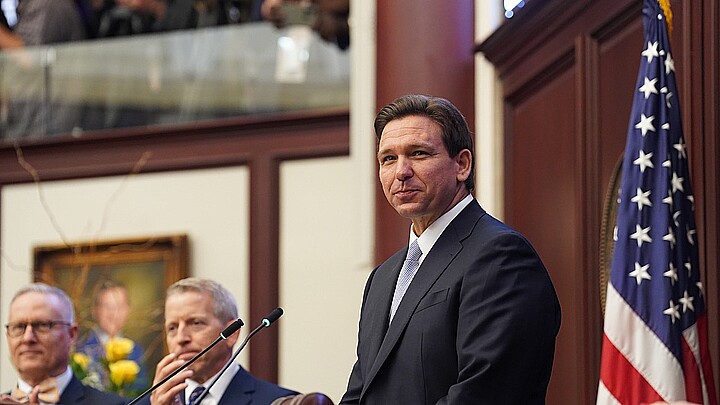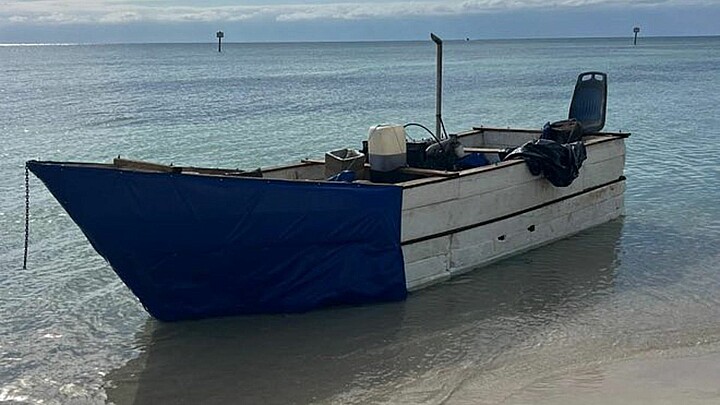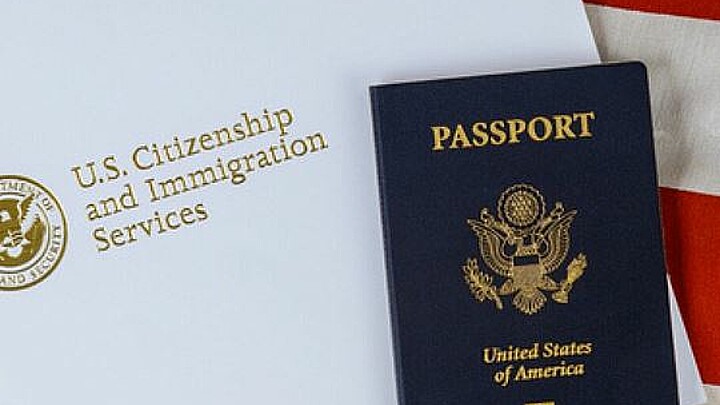Immigration
Cuban exiles blast proposed talks between Washington and Havana
“It is giving breath to one of Putin's main allies in the world,” said exiled philosopher and opposition leader Orlando Gutierrez-Boronat.
April 19, 2022 9:35am
Updated: April 20, 2022 9:05am
United States government officials are scheduled to meet with members of the Cuban regime in Washington next Thursday to discuss immigration related issues as a 21st-century exodus has brought more than 73,000 Cubans to the U.S. in the last five months alone.
On Monday, Reuters revealed the plans for what would be the highest-level talks between Washington and Havana since President Biden took office in January 2021.
According to two sources familiar with the matter, Deputy Foreign Minister Carlos Fernandez de Cossio will lead the Cuban delegation.
But at a time when the Cuban regime has upwards of 800 political prisoners in custody – many of whom have allegedly been tortured while in prison – South Florida’s Cuban community was quick to react to the Biden administration’s proposed talks.
“Once again, the U.S. is on its way to bail out the regime,” Miami-based lawyer and Cuban exile leader, Marcell Felipe, told ADN America, adding that Havana has often used immigration as an “escape valve each time it faces the wrath of its people.”
Betty Perdomo, a North Carolina resident and cousin of political prisoners Jorge and Nadir Perdomo – both of whom face sentences of 10 and 8 years respectively – said it would be a shame if Washington did not address “the real crisis in Cuba, the political prisoners.”
Sería una vergüenza que funcionarios del régimen dictatorial cubano se reúnan este Jueves en Washington con funcionarios del gobierno norteamericano y no hablaran de la verdadera crisis de #Cuba, los presos políticos. #HablenDeLosPresosPoliticos #SOSCuba pic.twitter.com/IO5HfXKwrO
— Betty Guerra Perdomo (@BettyGuerraPer1) April 19, 2022
Exiled philosopher and opposition leader Orlando Gutierrez-Boronat also addressed the upcoming talks, warning that it is a “moral and strategic error to give an escape valve and oxygenation to a regime that oppresses its people and is an enemy of this country.”
“It is giving breath to one of Putin's main allies in the world,” he added.
But as was previously mentioned, it would not be the first time the Cuban regime has used immigration as a political tool. The dictatorship used similar tactics during Mariel crisis of 1980 when it opened Cuban jails and sent convicted criminals to the United States and again during the rafters crisis in 1994 to calm the El Maleconazo protests.
Felipe told ADN America that he believed the U.S.’ short-sighted policy has allowed America to be played by the Cubans each time – adding that “the US should focus on ending the regime for the benefit of the Cuban people and to put an end to the use of the island as a base for Russia and potentially one day as a base for China and North Korea or America's enemy of turn.”
The Assembly of Cuban Resistance, a human rights organization comprised of more than 40 opposition coalitions inside and outside the island, joined the opposition to the meeting between Washington and Havana, emphasizing that the negotiations were established “precisely at a time when the communist regime of Cuba has stood out for its total support to the Russian aggression against Ukraine.”
In a statement released on Tuesday, the group further called on the Cuban exile community to join “all freedom lovers in civically and peacefully protesting against this ignominy.”
On Tuesday night, Cuban pro-democracy activist and founder of CubaDecide Rosa María Payá responded to the meeting’s announcement by tweeting what, in her opinion, are “the only points that should be discussed with the dictatorship” in Havana.
According to Payá, Washington should only ask its Cuban counterparts for the “immediate release of all political prisoners” and the “respect for the human rights of all Cubans, including free elections.”
"Of course, these [points] do not go in the conversation, they are conditions before sitting down,” Payá added.
Los únicos puntos a tratar con la dictadura son:
— Rosa María Payá A. (@RosaMariaPaya) April 19, 2022
-Liberación inmediata de todos los presos políticos
-Respeto a los DDHH de los cubanos incluidas las elecciones libres
Claro, que estos👆no van en la conversación, son condiciones antes de sentarse. Y se acaba la crisis migratoria pic.twitter.com/JkYkqBZbdy
A U.S. official and another source on condition of anonymity told Reuters that the White House wants the communist regime to accept more deportees than the record number of Cubans arriving at the U.S. southern border.
For Jason Poblete, a Washington-based attorney and president of the Global Liberty Alliance who represents Americans imprisoned by the Cuban regime, including Cuban-American teacher Alina Miyares who is currently being held on espionage charges, the meeting could open an opportunity to rescue American political prisoners on the island.
"I hope this is a step toward resolving cases of Americans unjustly imprisoned in Cuba, something we had raised with the administration some time ago," Poblete told ADN America.
A State Department spokesman told Reuters that "Cubans currently occupy the second largest group arriving at the southwest border of the United States" and as of October 2021, the Cuban regime stopped accepting new deportations from the United States, according to a spokesman for U.S. Immigration and Customs Enforcement (ICE).
According to U.S. Customs and Border Protection data, the number of Cubans apprehended at the U.S.-Mexico border soared to 16,531 in February, the highest number ever recorded in a single month.
So far in fiscal year 2022, only 20 Cubans have voluntarily repatriated to the island, but the Cuban government "has not accepted any ICE deportations via commercial or charter flights," the source explained.










